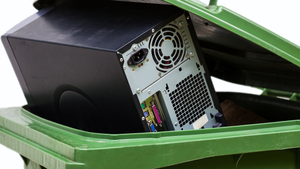
Towards Zero Waste: Advancing Innovation with Sustainable Tech Solutions

The tech industry is on a mission towards zero waste, advancing innovation with sustainable tech solutions. This ambitious goal involves rethinking how electronic devices are designed, produced, and disposed of, with a focus on minimizing environmental impact.
One of the key strategies in this mission is the use of recyclable hardware. By selecting materials that can be easily recycled, manufacturers can ensure that old devices don't end up in landfills. Instead, valuable components like metals and plastics are recovered and reused in new products. This approach not only reduces waste but also conserves resources, making the production process more sustainable.

Innovation is at the heart of achieving zero waste. Tech companies are investing in cutting-edge research to develop new materials and recycling techniques. This includes creating biodegradable components, improving disassembly methods, and enhancing the efficiency of recycling processes. These advancements make it possible to recover more materials from old devices and reduce the environmental footprint of new products.
Another important aspect of this mission is extending the lifespan of electronic devices. By designing products that are durable, repairable, and upgradeable, manufacturers can reduce the need for frequent replacements. This not only benefits the environment but also provides consumers with more value from their purchases.

Towards zero waste, the tech industry is also focusing on energy efficiency. From production to operation, reducing energy consumption is a priority. This includes using renewable energy sources, optimizing software for lower power use, and designing energy-efficient hardware.
Achieving zero waste in the tech industry is a challenging but essential goal. By advancing innovation with sustainable tech solutions, the industry can reduce its environmental impact, conserve resources, and create a more sustainable future. This mission requires collaboration across the industry, as well as support from consumers who are committed to making environmentally responsible choices.




